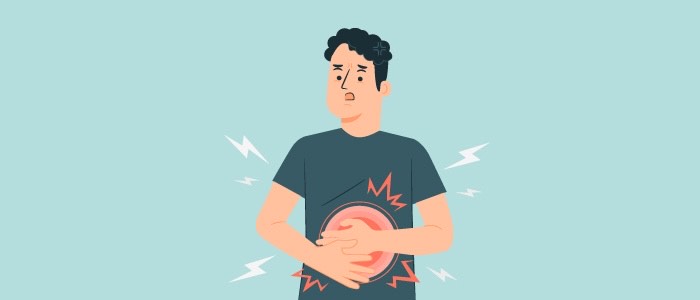Managing Chronic Hemorrhoids

One of the most common illnesses across the globe is ‘Hemorrhoids’. Also known as ‘Piles’ across general people, similar to that of ‘varicose veins’. Hemorrhoids are an illness of the rectum-anus area. It is a condition where the internal veins of the rectum get swollen and the skin surrounding the anus. In this condition, one feels discomfort during bowel movements with bleeding of different magnitudes.
Types Of Hemorrhoids
Hemorrhoids can be of three types depending upon person to person. They are as follows.
- Internal Hemorrhoids – Internal hemorrhoids is the condition where hemorrhoids are formed in the internal walls of the rectum. It is also known as first-degree hemorrhoids as usually, in this case, there is no pain experienced but you bleed little, during bowel motion. In most cases, this does not last long and gets cured on its own.
- External Hemorrhoids – As the name suggests, the hemorrhoids here are formed outside the rectum. Itching in this region is common and swelling might be observed. This can be painful and bleed more which may need medical help.
- Prolapsed Hemorrhoids – In this case, the hemorrhoids are formed internally (i.e. in the rectum) but get so enlarged that they protrude out of the rectum. Severe pain & discomfort with bleeding is observed.
- Thrombosed Hemorrhoids – When a blood clot develops inside a hemorrhoidal vein, constricts blood vessels, and results in painful swelling of the anal tissues, hemorrhoid becomes thrombosed, known as thrombosed hemorrhoids. This is quite painful as well. A hard lump can be observed at the external part of the rectum.
What Causes Hemorrhoids?
There are quite a few reasons that cause piles but the most common reasons for the cause are usually lifestyle related. These are as follows.
- Being overweight.
- Regular heavy lifting.
- Forcing too hard while passing stool.
- Constipation.
- Engaging in anal intercourse.
- Pregnancy.
- Chronic diarrhea.
Things To Keep In Mind While Consulting A Doctor
- Realize that there is nothing to feel embarrassed about regarding the illness when consulting a medical professional and it is mandatory that we discuss with the doctor regarding the problem faced, in detail.
- Inform the doctor about current medications and supplements, if any.
- Discuss information about personal lifestyle and bowel habits.
- Inform regarding any specific allergies, even related to any medicine.
Treatment
The doctor would conduct a rectal examination to gain clear insights into the condition of the rectum. This could be either physically or by proctoscopy ( a hollow tube whose one end has a small light for enhanced visual inspection of the rectum ). Diagnosis is also done to check for or rule out the possibility of colorectal cancer and anal cancer. If so, appropriate tests and treatment are further conducted.
Non-Surgical
In cases where mild hemorrhoids, such as low to no pain/discomfort and very few drops of occasional bleeding while passing stools; the body is potential enough to cure itself without any external medication anywhere in between a few days to a week concerning a fiber-rich diet.
In case of pain and swelling, the doctor would suggest medicated cream. Ointments and suppositories could also be prescribed in case of severe swelling and discomfort.
In instances where more pain and bleeding are observed the doctor would suggest minimally invasive procedures such as follows
- Rubber Band Ligation – A special form of skin-friendly band is used to place a knot around the hemorrhoids which eventually drop off due to lack of blood circulation. This generally takes around a week to ten days to drop off.
- Sclerotherapy – A medicated fluid is injected into the piles’ tissue with the help of a syringe. These piles eventually shrink in size.
- Electrotherapy – Low-intensity current is passed through the hemorrhoids. This also leads to the shrinkage of piles.
- Infrared Coagulation – In this case, the hemorrhoids are made to harden and eventually collapse by cutting off their blood supply with an infrared laser.
Surgical
The hemorrhoids/piles are directly removed through different surgical procedures. There are three surgical methods possible and the doctor diagnosing it would suggest the one undergo for, subject to the patient’s condition. These are as follows.
- Hemorrhoidectomy – In case of severe and recurring hemorrhoids, hemorrhoidectomy is considered. Under anesthesia, the hemorrhoid tissues are surgically removed.
- Hemorrhoidopexy – Also known as hemorrhoid stapling. In this procedure, the hemorrhoids are stapled inside the anus and parallelly stop the flow of blood to the hemorrhoids. This procedure is opted in the case of internal hemorrhoids.
- Hemorrhoidal Artery Ligation – In this procedure, the hemorrhoid tissues causing blood loss are made to shrink by cutting off their blood supply with the help of sutures.
Though surgeries fetch great results, the patient might experience some pain post the surgery. It is common for patients to experience difficulty in emptying their bladder and passing stools initially for which the doctor would prescribe appropriate medicines as well. The patient is required to stay in the hospital for a day or two to help recover.
Prevention
There are multiple ways that can be useful in the prevention of hemorrhoids/piles. Most of them are controlled by maintaining healthy lifestyle habits which are as follows.
- Consumption of high-fiber foods (fruits, vegetables, whole grains, nuts, seeds, pulses, etc.)
- Drink plenty of water.
- Regular and gentle exercises.
- Try avoiding medicines that cause constipation.
- Avoid staying in the toilet for a long duration of time.
- Maintaining a healthy weight.
- Avoid food that makes you constipated.
- Maintaining the area around the anus/ bottom clean and dry.
- Avoid wiping your bottom vigorously.
- Don’t strain by putting pressure on the breath and veins of the rectum while passing stool.
